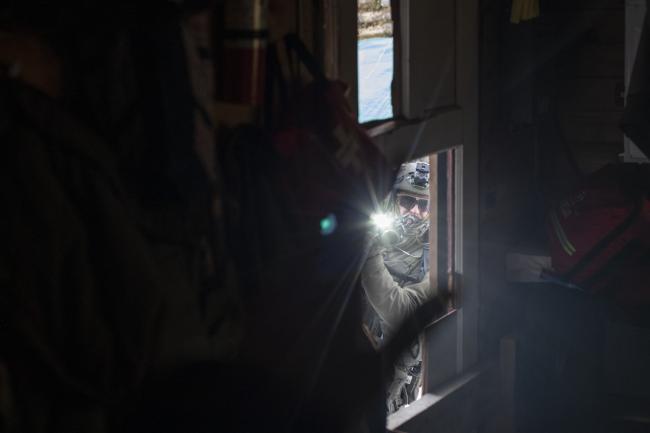As a small, non-profit news organization, we didn’t want to have to bring a lengthy, expensive litigation against one of the most powerful organizations in our country. But ultimately we realized we had no other choice. To not move forward with this case would be to turn our backs on what’s right — and to turn our backs on all the stories that happen in remote places without the watchful eyes of journalists, due to the chilling effect of arrests like these.
Bracken’s arrest is part of a troubling pattern of RCMP infringing on press freedom, whether at the Fairy Creek logging blockades, where RCMP used illegal exclusion zones to prevent journalists from reporting on arrests, or at Land Back Lane in Ontario where journalist Karl Dockstader was charged for failing to comply with an injunction while reporting from the frontlines of the conflict.
All too often, these incidents also involve Indigenous Rights. Previous court rulings have been clear: the arrest of Indigenous Peoples on their lands concerns every single person in this country — and should be a matter of public record, not hidden behind police lines.
Our case aims to establish meaningful consequences for police when they interfere with the constitutional rights of journalists covering events in injunction zones, including both journalists’ liberty rights and the freedom of the press as protected by section 2(b) of the Charter of Rights and Freedoms.
In filing this lawsuit, our goal is to clear a path for all journalists in Canada to do their work without risk of police interference.
Let’s be clear: we would never have been able to take this bold step without the support of our thousands of readers, donors and members. Today, when we walked into a courthouse in Vancouver to file our court documents, we imagined thousands of you walking with us, hand in hand in this mission to hold the RCMP accountable.
This is going to be a long journey, and we invite you to walk with us. Here are two ways you can join us:
- Register to attend our live online event on Wednesday, featuring myself, Carol Linnitt, Amber Bracken, legal counsel Sean Hern and Brent Jolly, president of the Canadian Association of Journalists.
- Make a donation to our legal defence fund for this case.
If you have burning questions about the case, check out our FAQ page. If you can’t find your answer there, send us an email.
In the meantime, thank you for all of your support and I hope to see you on Wednesday!
Emma Gilchrist
Editor-in-chief
P.S. Since we have a clear conflict of interest, our team at The Narwhal will not be reporting on this case. Make sure to tune in on Wednesday for our online Zoom event to learn more about why we decided to file this lawsuit and how it could advance the law on press freedom in Canada. |
|
